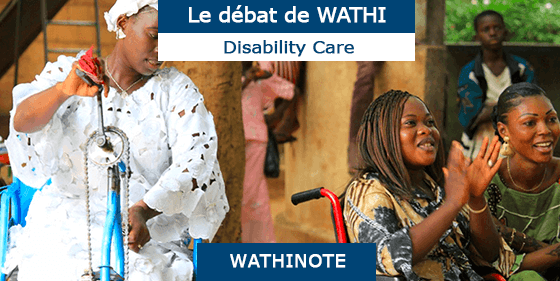

Author: Christa Rohwer
Affiliated organization: Health24
Type of publication: Press Article
Date of publication: May 2013
The road to good health does not stop when a person with a disability is discharged from hospital. Even though his life may have been saved, his medical condition has stabilised and he has been issued with a wheelchair or prosthesis, this does not mean this person’s rehabilitation is complete. Sport offers physical advantages, good blood circulation, stronger muscles, better balance and coordination. They may also have lower anger and stress scores than people with disabilities who are inactive.
The healthy side of sport
Through training for a sport, learning a new skill and working with others, many people have better self-discipline, better organisational skills, leadership and a sense of responsibility towards themselves and others. Communities can also benefit when community members are involved in sport. Many sport programmes around the world are focused on including unemployed youth in crime-ridden areas. Sport can provide healthy competition, promote constructive time use, positive social interactions and promote valuable life skills.
Common sports for disabled people
Some of the sports more commonly available for people with disabilities are track and field, table tennis, wheelchair tennis, wheelchair dance, chess, judo, 5-a-side soccer (for the athlete with visual impairment), 7-a-side football for athletes with cerebral palsy, swimming, wheelchair basketball, wheelchair rugby and cycling.
Some of the sports more commonly available for people with disabilities are track and field, table tennis, wheelchair tennis, wheelchair dance, chess, judo,
In competitive sport, such as in the Paralympics, athletes with disabilities undergo classification in which they receive a sport class based on their impairment and the extent to which it impacts sport performance. Classification is done to group athletes with similar levels of impairment for competition purposes and to level the playing field. Classification ensures that athletes who succeed in competition do so because of sport ability, skill and training rather than because of having milder impairment than a fellow competitor.
The challenge out there is for all community-based sports clubs and school sport to promote inclusion of people with disabilities in all their sporting activities as far as is possible, by removing physical and emotional barriers to participation. Stigma and an incorrect perception that people with disabilities do not want to or cannot participate in sporting activities is one of the biggest barriers to be overcome.
Les Wathinotes sont soit des résumés de publications sélectionnées par WATHI, conformes aux résumés originaux, soit des versions modifiées des résumés originaux, soit des extraits choisis par WATHI compte tenu de leur pertinence par rapport au thème du Débat. Lorsque les publications et leurs résumés ne sont disponibles qu’en français ou en anglais, WATHI se charge de la traduction des extraits choisis dans l’autre langue. Toutes les Wathinotes renvoient aux publications originales et intégrales qui ne sont pas hébergées par le site de WATHI, et sont destinées à promouvoir la lecture de ces documents, fruit du travail de recherche d’universitaires et d’experts.
The Wathinotes are either original abstracts of publications selected by WATHI, modified original summaries or publication quotes selected for their relevance for the theme of the Debate. When publications and abstracts are only available either in French or in English, the translation is done by WATHI. All the Wathinotes link to the original and integral publications that are not hosted on the WATHI website. WATHI participates to the promotion of these documents that have been written by university professors and experts.
